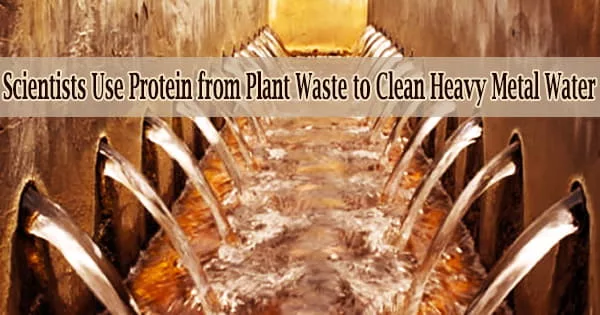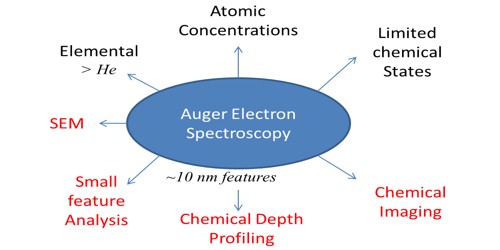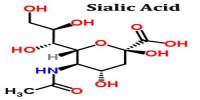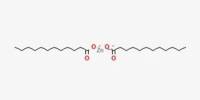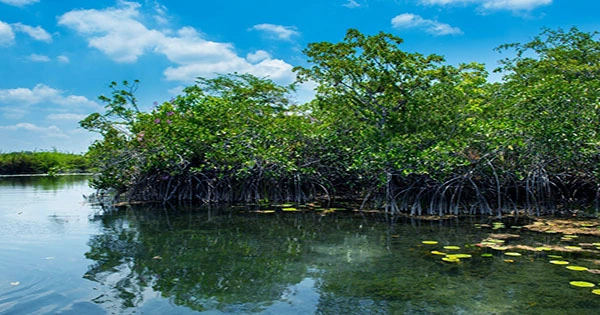A membrane formed from a waste byproduct of the production of vegetable oil was developed by researchers from Nanyang Technological University, Singapore (NTU Singapore) and ETH Zurich, Switzerland (ETHZ), to filter out heavy metals from contaminated water.
Professor Ali Miserez, head of the research team at the School of Materials Science & Engineering, School of Biological Sciences, and NTU The Department of Health Science and Technology’s visiting professor, Raffaele Mezzenga, found that proteins made from waste products in the manufacture of peanut or sunflower oil can effectively bind heavy metal ions.
Adsorption, a process of attraction, was demonstrated in testing to have the ability to filter tainted water to levels that satisfy global drinking standards. The membrane developed by the researchers has the potential to be a low-cost, low-power, long-lasting, and scalable technique for removing heavy metals from water.
Prof Miserez said: “Water pollution remains a major global issue in many parts of the world. Heavy metals represent a large group of water pollutants that can accumulate in the human body, causing cancer and mutagenic diseases. Current technologies to remove them are energy-intensive, requiring power to operate, or are highly selective in what they filter.”
“Our protein-based membranes are created through a green and sustainable process, and require little to no power to run, making them viable for use throughout the world and especially in less developed countries. Our work puts heavy metal where it belongs as a music genre and not a pollutant in drinking water,” said Prof Miserez.
The research team’s findings were released in April by Chemical Engineering Journal. Their research is focused on ensuring water security, which is in line with NTU 2025’s strategic plan and the university’s objective to lessen the effects of human activity on the environment.
The filter can be used to filter any sorts of heavy metals, and also organic pollutants like PFAS (perfluoroalkyl and polyfluoroalkyl substances), which are chemicals that have been used in a wide range of consumer and industrial products. The amyloid fibrils contain amino acid bonds that trap and sandwich heavy metal particles between them while letting water pass through.
Professor Ali Miserez
Transforming vegetable oilseed meals into water filters
Oilseed meals, a waste byproduct from the production of commercial household vegetable oils, are produced. These are the protein-rich byproducts that are left over after the raw plant’s oil has been removed.
The oilseed meals from sunflower and peanut oils were employed by the NTU-led study team. In order to create protein amyloid fibrils, which are rope-like structures consisting of tightly wound proteins, the team first extracted the proteins from oilseed meals.
These protein fibrils operate as a molecular sieve, capturing heavy metal ions as they pass by because they are attracted to heavy metals. About 160g of protein are produced every kilogram of oilseed meal.
The paper’s first author, NTU Ph.D. student Mr. Soon Wei Long, said:
“Protein-rich sunflower and peanut meals are low-cost raw materials, from which protein can be extracted, isolated, and self-assembled into functional amyloid fibrils for heavy metal removal. This is the first time amyloid fibrils have been obtained from sunflower and peanut proteins.”
To create a hybrid membrane, the researchers mixed activated carbon, a typical filtering material, with the recovered amyloid fibrils. Platinum, chromium, and lead were used as the three heavy metal contaminants on which they tested their membranes.
Adsorption is the mechanism by which heavy metal ions adhere to the surface of the amyloid fibrils as contaminated water passes through the membrane. The amyloid fibrils’ high surface-to-volume ratio makes them effective at adsorbing a lot of heavy metals.
The group discovered that their membranes were capable of filtering up to 99.89% of heavy metals. The filter worked best for lead and platinum out of the three metals tested, then chromium.
“The filter can be used to filter any sorts of heavy metals, and also organic pollutants like PFAS (perfluoroalkyl and polyfluoroalkyl substances), which are chemicals that have been used in a wide range of consumer and industrial products,” said Prof Miserez. “The amyloid fibrils contain amino acid bonds that trap and sandwich heavy metal particles between them while letting water pass through.”
The amount of water that the membrane can filter out depends on the amount of heavy metals present in the contaminated water, according to the researchers. In order to filter the equivalent volume of an Olympic-sized swimming pool contaminated with 400 parts per billion (ppb) of lead into drinking water, a hybrid membrane built with sunflower protein amyloids will only need 16kg of protein.
“The process is readily scalable due to its simplicity and minimal use of chemical reagents, pointing towards sustainable and low-cost water treatment technologies,” said Mr. Soon. “This allows us to re-process waste streams for further applications and to fully exploit different industrial food wastes into beneficial technologies.”
Additionally, the trapped metals can be freed and recycled again. After filtration, the metals can simply be removed by burning the membrane that was employed to trap them.
“While metals like lead or mercury are poisonous and can be safely disposed of, other metals, such as platinum, have valuable applications in creating electronics and other sensitive equipment,” said Prof Miserez.
“Recovering precious platinum, which costs US$33,000/kg, only requires 32 kg of protein, while recovering gold, which is worth almost US$60,000/kg, only requires 16 kg of protein. Considering that these proteins are obtained from industrial waste that is worth less than US$1/kg, there are large cost benefits.”
Sustainable, low-power filtration
Prof. Raffaele Mezzenga, the paper’s co-author, had previously revealed in 2016 that whey proteins generated from cow’s milk exhibited comparable metal-attracting capabilities.
The scientists came to the conclusion that proteins from vegetable oilseed meal might also possess comparable qualities. Their research revealed that those proteins were not only equally effective but also less expensive and more environmentally friendly because they make use of waste that would otherwise be thrown away or used as animal feeding.
The fact that this filtering uses little to no energy, as opposed to other techniques like reverse osmosis that do, is another significant benefit, according to the researchers.
“With our membrane, gravity does most or all of the work,” said Prof Mezzenga. “This low-power filtration method can be very useful in areas where there might be limited access to electricity and power.”
The researchers are currently exploring the commercial applications of their membrane with BluAct, a Europe-based water filtration spin-off company of ETH Zurich.
